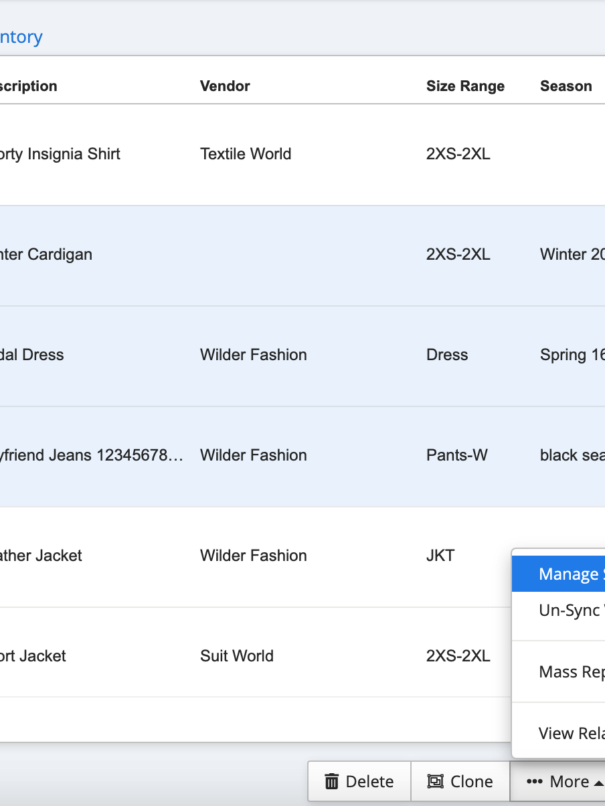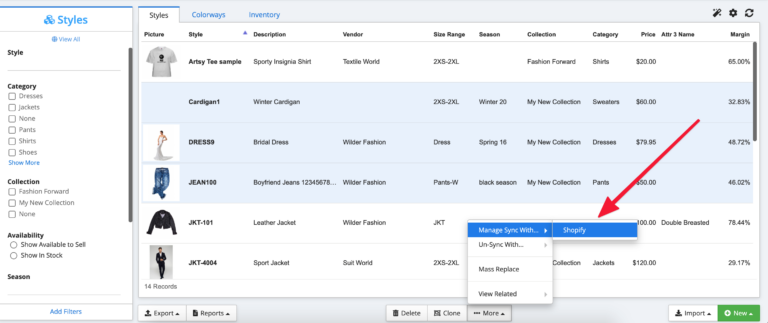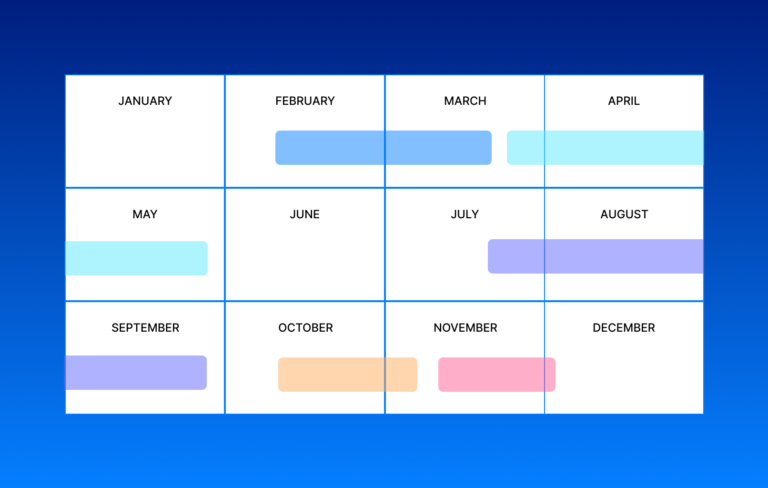In an age where technology and innovation are reshaping the very fabric of the fashion industry, the emergence of cloud enterprise resource planning solutions stands as a defining milestone. These cloud-based software solutions are not merely a trend but a fundamental shift in how businesses operate, manage resources, and achieve efficiency.
The adoption of cloud-based ERP in the fashion industry is driven by a growing recognition of its transformative potential, with a projected growth rate exceeding 11% between 2023 and 2030,
From small startups to multinational corporations, cloud ERP’s appeal is alluring to well-established fashion companies and midsize businesses.
What sets cloud-based ERP systems apart is their ability to offer robust functionality without the traditional overheads associated with on-premises systems. It’s a solution that aligns with dynamic business goals, providing unparalleled flexibility, scalability, cost-effectiveness, and, of course, seamless inventory management.
This shift is about adopting new technology and embracing a philosophy that positions businesses for success in an ever-changing global market. The business applications are staggering; therefore, apparel business owners leverage cloud-based ERP software solutions to enjoy benefits across the board and finish garment projects on time.
Scalability
You might be wondering what cloud-based ERP software is and why it’s so important in this modern business climate. The answer to that question is multifaceted but can be broken down into several key aspects. First, we will start by explaining the scalability it offers businesses and proceed with other equally important factors.
Adaptability and growth are paramount for businesses, and scalability emerges as a vital attribute. Cloud ERP systems, engineered with scalability at their very essence, provide a robust platform that evolves and amplifies in alignment with a business’s expansion.
- Adaptable Infrastructure: Cloud ERP solutions transcend the limitations of traditional systems with their quick implementation and endless scalability depending on the set business goals and needs, eliminating the need for substantial investment in hardware and infrastructure to scale.
With the capacity to manage escalating loads, additional users, transactions, and data without compromising performance, they offer an adaptable infrastructure. This adaptability not only ensures a future-proof system but also sustains efficiency as the business flourishes.
- Global Reach: The concept of scalability in cloud ERP is multifaceted, extending beyond mere numbers and capacity; it encompasses geographical and cultural dimensions. Systems like ApparelMagic offer support for supply-chain management, inventory management, and so much more, as there are a variety of integrations available.
- Long-Term Viability: The inherent scalability of cloud ERP minimizes the risk of the software becoming obsolete. It serves as a steadfast platform that evolves in harmony with your business, negating the need for recurrent system overhauls or replacements. This enduring viability translates into consistent efficiency and aligns strategically with long-term business objectives.
- Ease of Integration: Scalability’s scope also includes the effortless integration of new functionalities and modules. As a business’s landscape evolves, a scalable and agile ERP system accommodates the seamless incorporation of diverse features, be they eCommerce capabilities, customer relationship management, or intricate analytics tools. This integration agility ensures that the system remains congruent with changing business requirements.
- Cost-Effective Growth: One of the most compelling facets of scalability in cloud-based solutions is the low cost of ownership and guaranteed ROI. Most cloud-based systems offer flexible pricing for enterprises, which fosters a flexible and economically efficient scaling process without burdensome upfront capital investments in hardware or ancillary resources. This cost-effective approach demystifies growth, rendering it not only attainable but also manageable.
In the fashion industry, where trends and demands are constantly evolving, the scalability offered by cloud-based ERP systems is a game-changer. By providing adaptable infrastructure and global reach through integrations like supply-chain and inventory management, warehouse management, supplier management, long-term viability, ease of integration, and cost-effective growth, these software solutions align perfectly with the dynamic needs of fashion businesses.
Furthermore, the flexibility to scale without substantial upfront investment ensures that fashion brands can respond swiftly to market changes, expand into new territories, and integrate new functionalities as needed, which positions them for enduring success, making cloud ERP not just a technological tool but a strategic asset in the competitive fashion world.
Flexibility: The Agile Advantage
Customization Options and Personalization
In a world where one-size-fits-all solutions are increasingly inadequate, cloud-based ERP systems’ flexibility stands out. Unlike rigid traditional systems, cloud ERP solutions can be tailored to fit the unique requirements of each business. From integrating specific eCommerce functionalities to incorporating specialized third-party integrations that help you better manage your business processes, the system can be molded to align perfectly with your growth strategy and operational needs.
Agile Response to Market Changes
The inherent flexibility of cloud-based ERP systems enables an agile response to shifts in the market. Whether reacting to sudden changes in consumer behavior, regulatory compliance, or competitive pressure, a flexible ERP system allows for rapid adjustments. This adaptability ensures that the business remains resilient and proactive, ready to meet the ever-changing demands of the modern marketplace.
Seamless Integration and Scalable Adaptation
Flexibility in cloud-based ERP systems also extends to seamless integration with other existing systems within the organization, ensuring a cohesive technological ecosystem. This integration enhances efficiency and reduces redundancy, allowing data to flow smoothly between different platforms. Complementing its scalability, the flexible nature of cloud-based ERP ensures that as the business evolves, the system continues to serve its needs without necessitating a complete overhaul.
Cost Control, Enhanced Collaboration, and Workflow Management
The flexible nature of cloud ERP translates into more effective cost control, allowing businesses to pay for only what they use and scale as needed. This optimization contributes to overall financial management and efficiency. Furthermore, flexibility fosters a more collaborative environment by enabling real-time updates and customization to suit various departmental needs. This adaptability enhances cross-functional collaboration and streamlines workflow management, positioning the organization for success.
The ability to customize and personalize the system, from integrating specific eCommerce functionalities to incorporating specialized tools, allows fashion businesses to align perfectly with their unique growth strategies and operational needs.
The benefits apparel businesses can enjoy: The agile response to market changes ensures that fashion brands can adapt quickly to new trends or shifts in consumer behavior. Seamless integration with existing systems and scalable adaptation means that as the fashion landscape evolves, the system continues to serve without a complete overhaul.
Moreover, the enhanced collaboration and workflow management facilitated by cloud ERP’s flexibility streamlines the creative and production processes. In essence, the flexibility of cloud ERP systems empowers fashion businesses to stay ahead in a dynamic and competitive industry, fostering innovation, efficiency, and success.

Cost-Effectiveness: The Strategic Investment
No Upfront Capital Expenditure
In the traditional model of ERP implementation, substantial upfront capital investment in hardware and infrastructure is often required. Cloud ERP solutions revolutionize this approach by eliminating the need for heavy initial investments. By hosting the system in the cloud, businesses can access robust ERP functionalities without the financial burden of purchasing and maintaining physical servers and related hardware.
Predictable and Transparent Expenses
Subscription-based pricing is a hallmark of cloud ERP systems. This model ensures transparency in costs, allowing for better budgeting and financial planning. Unlike traditional systems, where unexpected expenses can arise from maintenance and upgrades, cloud-based ERP offers predictable monthly or annual fees. This predictability empowers businesses to plan strategically and allocate resources more effectively.
Reduced IT Overhead
Outsourcing system maintenance and upgrades to the provider is another cost-saving advantage of cloud ERP. By shifting the responsibility for these tasks to experts, businesses reduce the need for extensive in-house IT resources. This not only lowers operational costs but also ensures that the system is always up-to-date with the latest features and security measures.
Scalable Pricing Models
The pay-as-you-use model of cloud-based ERP solutions aligns with the scalability of the system. As the business grows or contracts, the costs can be adjusted accordingly. This flexibility in pricing ensures that businesses are not overpaying for unused capacity or constrained by limited resources. It’s a cost-effective approach that aligns with the dynamic nature of modern businesses.
Energy Efficiency and Sustainability
Cloud-based ERP solutions also contribute to energy efficiency and sustainability. By utilizing shared resources in a cloud environment, businesses reduce their energy consumption and carbon footprint. This not only translates into cost savings but also aligns with a growing global emphasis on environmental responsibility.
Unlike traditional ERP systems that require substantial upfront capital investment, Cloud ERP solutions allow fashion businesses to access robust functionalities without the financial burden of hardware and infrastructure. The subscription-based pricing ensures predictable and transparent expenses, enabling better budgeting and strategic planning. By outsourcing maintenance and upgrades, fashion brands can reduce IT overhead while keeping the system up-to-date without incurring additional costs.
The scalable pricing models of cloud ERP software align with the dynamic nature of the fashion industry, allowing costs to adjust as the business grows or contracts. Additionally, the energy efficiency and sustainability of cloud-based solutions not only translate into cost savings but also resonate with the growing emphasis on environmental responsibility in the fashion world.
Overall, cloud ERP software represents a cost-effective and strategic investment for fashion businesses, offering financial flexibility and alignment with both short-term operational needs and long-term growth objectives.
Mobility: Business Without Boundaries
Cross-Platform Compatibility
Cloud-based ERP solutions are often designed to be compatible across various devices and platforms. Whether accessed through a desktop, laptop, tablet, or smartphone, the user experience remains consistent and efficient. This cross-platform compatibility ensures that team members can work seamlessly, regardless of the device they are using, enhancing productivity and collaboration.
Real-Time Collaboration and Updates
Mobility in cloud-based ERP fosters real-time collaboration and updates. Team members can work simultaneously while project management standards are met and, in addition to that, access real-time data and make informed decisions, regardless of their location. This real-time collaboration ensures that everyone is on the same page, reducing delays and enhancing business processes and decision-making.
Enhanced Customer Engagement
The integration option of ERP and CRM systems can boost customer engagement seamlessly. Sales teams, customer service representatives, and other client-facing roles can access essential information on the go, providing timely and personalized responses. This mobility enhances customer satisfaction and engagement, building stronger relationships and trust.
Security on the Go
While mobility offers numerous advantages, it also raises security concerns. The benefits of cloud applications, such as a robust ERP system, address this by implementing robust security measures for mobile access. From secure authentication methods to encrypted connections, these security protocols ensure that mobile access is convenient and secure.
In a nutshell, the mobility of cloud-based ERP systems presents a transformative approach that transcends geographical limitations. It ensures anywhere, anytime access with cross-platform compatibility, fostering real-time collaboration, fulfilling customer expectations and increasing engagement, and maintaining robust security measures for mobile access.
This amalgamation of features offers a seamless and efficient way to manage operations, engage with customers, and safeguard data, laying the foundation for more agile and responsive business practices.
Conclusion
The emergence of cloud-based enterprise resource planning software solutions marks a transformative shift in business operations, offering unparalleled flexibility, scalability, cost-effectiveness, and security. The features of cloud-based systems cater to the dynamic needs of modern fashion businesses, providing robust functionality without traditional overheads.
From enhancing global reach and long-term viability to ensuring advanced cybersecurity and enabling business mobility, cloud ERP is not just a technological advancement but a strategic imperative. It represents a future-proof approach that aligns with the agility, adaptability, and real-time decision-making required for success in today’s ever-changing global market.







